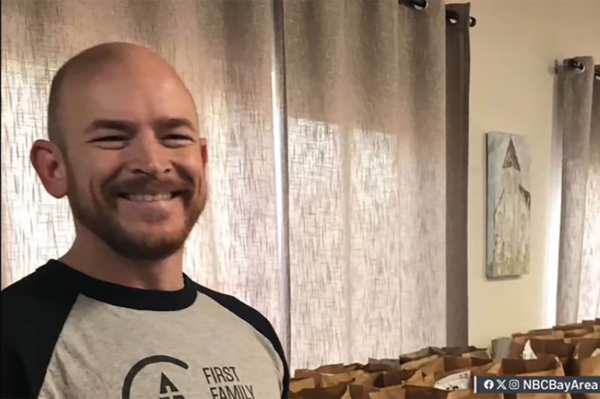Pat Robertson's Operation Blessing Issues Rebuttal of 'Mission Congo' Film Highlighting Nonprofit Exploitation Claims
-Operation Blessing's relief efforts at the time were under the supervision of Bob Fanning, a retired U.S. Air Force Colonel who served as Executive Vice President and CEO of the organization. He personally oversaw the medical shipments and the teams of doctors and other medical staff in Zaire during this crisis. Without question, the work of OB in Zaire was exemplary and resulted in the relief of much human suffering.
-Jessie Potts, who was oddly referenced in the film as being the "operations manager for Robertson in Goma in 1994," was not an employee of Operation Blessing. Our records indicate he was a volunteer, and only for a short time.
-Mr. Potts' quote about the medications that OB provided as not being useful ("too much Tylenol") is completely unfounded. OB records confirm that hundreds of thousands of dollars worth of emergency medicines (including many different varieties of antibiotics, anti-malarial drugs, anti-diarrheal medications, oral rehydration salts) along with other medical equipment (intravenous equipment, x-ray machines, lab equipment, bandages, forceps, syringes, etc) were flown into the country by Operation Blessing on multiple occasions. Interestingly, OB records do not show any Tylenol being sent by the organization.
-A further allegation claims that Operation Blessing only had one tent and seven doctors on the ground in Goma. In fact, the organization sent at least six medical relief teams to Goma between July and December 1994. The medical relief teams ranged in size from approximately seven to seventeen persons and included doctors, nurses and paramedics. The first team arrived in Goma on July 24, 1994. On the same day, OB arranged for 66,000 pounds of medicine and supplies to arrive in Goma on an aircraft it had chartered from Amsterdam.
-Regarding school and farm in Dumi that were originally built by Operation Blessing, they are both thriving today. When Operation Blessing left the country in 1997 due to political unrest and violence, the school and farm were given to the National Baptist Community (CBCO). CBCO operated both of these continually until another American relief organization took over operation in 2008.
-Under its new operators, the school now has many new upgrades including solar powered lighting, new paint and repaired furniture. It currently has over 100 students registered for the fall term. Its current headmaster was one of the first local people to work for Operation Blessing in the early 1990s. A sign on the school still reads, "Don De L'Operation Benediction" (French for: Donated by Operation Blessing). This was confirmed this week by Jon Cassel, CBN's director of Africa operations who was on the ground in Zaire with Operation Blessing in the 1990s and has returned multiple times each year ever since to meet with the current operators.
-The farm is also thriving today, although it did struggle the first several years due to the learning curve involved with cultivation in Africa. Today, more than 1250 acres are under cultivation and its produce helps to feed many families in the area. The farm and the school, first founded by Operation Blessing, are a permanent legacy of the organization's work in the region.
-While Operation Blessing partners with other aid groups on humanitarian efforts all around the world on a daily basis, we are not aware of any instance in which we made use of another organization's photos or videos without accompanying explanation. In fact, due to its affiliation with CBN, Operation Blessing always travels with its own cameras and would have no reason to use someone else's videos.
-Roughly twenty years ago, Operation Blessing purchased three World War II used airplanes for aid relief in Africa. A short time later, a personal business entity of Dr. Robertson's called the African Development Corporation (ADC), bought one of the planes from OB for full market value and the price paid by OB. All three planes were shipped across the Atlantic to the Congo. In addition to paying for all the operating expenses for the ADC flights, Dr. Robertson made substantial contributions from personal funds to help OB cover the costs of its flight operations in Zaire.
-The planes turned out to be unreliable, were constantly breaking down and it became difficult to secure spare parts for them. So the missions were occasionally overlapped using whatever plane(s) was/were working. The ADC plane was partly used to haul humanitarian supplies for OB, while the OB planes were partly used to haul freight for ADC. All usage of the OB planes for ADC purposes was fully paid for by ADC.
-Robert Hinkle, referred to in the film as being "the chief pilot for Operation Blessing" in Zaire in 1994, never worked for Operation Blessing.
-When the planes did not work out as expected, Dr. Robertson personally donated $400,000 to OB to cover its costs of acquiring the two airplanes.
-The total take in the diamond mining operation was exactly one stone weighing about an eighth of a carat. The effort was a total failure and was abandoned, with Dr. Robertson donating the equipment to the African church that owned the river concession. The operations of ADC resulted in a substantial personal financial loss to Dr. Robertson. Media reports suggesting that Dr. Robertson "enriched" himself by diamond mining are grossly false.
-The Virginia Attorney General's office conducted an exhaustive study of Bill Sizemore's allegations and found no evidence of wrongdoing by Pat Robertson or Operation Blessing. The report was jointly signed by four Deputy and Assistant' Attorneys General.
-As for "fraudulent and deceptive statements" attributed to Dr. Robertson by the Virginian Pilot, the Attorney General found that of all the references to the Congo activities on The 700 Club, there was one instance of an inaccurate statement, but it was deemed as inadvertent and no funds were raised based on this statement. Further, a letter* written by the Commissioner of the Department of Agriculture and Consumer Service of the Commonwealth of Virginia to the Editor of the Virginian Pilot, dated July 21, 1999, scolded that newspaper for its "inaccurate" reporting of the story. The Commissioner expressly agreed with the Attorney General's findings, saying, "Anyone who has read both reports will conclude that the state's lawyers checked out the issues thoroughly and applied the facts to the law. I am satisfied with their conclusion that there was no evidence of intent to defraud." (*Copies of letter and the Attorney General report available upon request)
-The allegations stemming from the Virginian Pilot were also brought to the attention of the Internal Revenue Service, which examined the facts and took no action.
-As for allegations that authorities chose not to prosecute because of campaign donations made by Dr. Robertson, those are ridiculous and completely without merit. Multiple assistant Attorneys General reviewed the matter and the 38-page report was signed by the Chief Deputy Attorney General, the Deputy Attorney General, the Senior Assistant Attorney General, and the Assistant Attorney General, none of whom received any donation from Dr. Robertson or Operation Blessing.
The fact remains that Operation Blessing has grown into one of the largest charities in America. Founded by Dr. Robertson in 1978, the organization continues to provide strategic disaster relief, medical aid, hunger relief, clean water and community development in 23 countries around the world on a daily basis. Currently, Forbes ranks OBI as one of its "100 Largest Charities" with an efficiency rating of 99%, and Consumers Digest also named OBI as one of "America's Top Charities" in 2012. For seven years in a row (2005-2011), OBI was awarded Charity Navigator's coveted 4 star rating for sound fiscal management, a feat that only 2% of rated charities have ever achieved. Operation Blessing International has touched the lives of more than 255 million people in more than 105 countries and 50 states, providing goods and services valued at over $3.3 billion to date.
# # #






















